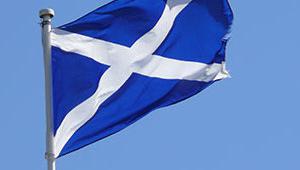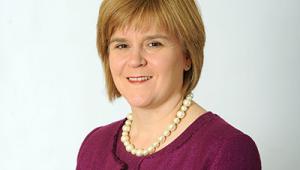By Keith Aitken in Edinburgh | 6 March 2013
Rising oil and gas revenues have strengthened Scotland’s claim to be a net contributor to the UK public finances, according to the annual report on Scotland’s fiscal balance published today by the chief statistician.
The Government Expenditure and Revenue Scotland 2011/12 immediately reignited the argument over whether Scotland would be better off if it voted for independence at next year’s referendum rather than to remain within the UK.
According to the GERS report, Scotland, with 8.4% of the UK population, contributed 9.9% of UK revenues and received 9.3% of UK public spending. The revenue figure includes a geographical share of North Sea receipts, without which Scotland’s share would be 8.2% of the total raised in the UK.
The report also suggests a lower level of fiscal deficit in Scotland, where public debt totalled £3.4bn or 2.3% of Scottish gross domestic product compared with £92.3bn, or 6%, for the UK as a whole.
As is traditional, the GERS report set off a lively exchange of claim and counter-claim between Scotland’s constitutional combatants. Finance Secretary John Swinney said the figures showed that Scotland ‘more than pays her way in the UK’.
He added: ‘Over the past five years, Scotland has been in a stronger financial position relative to the UK as a whole by a total of £12.6bn. With responsibility for our own finances and our own vast natural resources, we will be able to make choices in our own best interests.
‘The referendum will be a chance for Scotland to choose a new, better path.’
But UK Scottish Secretary Michael Moore insisted that the figures showed the benefits for Scotland of remaining within the UK. ‘The rise in oil revenues is welcome and shows that the UK’s regulatory and tax regime is supporting the industry to get the most out of North Sea oil and gas,’ Moore said.
Oil prices, he added, were extremely volatile year-on-year, and volatility was better managed inside a larger UK. Swinney’s Labour shadow, Ken Mackintosh, also argued that it was ‘folly’ to rely too heavily on erratic oil prices. ‘We do not just have a shared economy, but also shared services, a shared pensions system, and our largest trading partner is the rest of the UK,’ he said.
The Scottish Conservatives said the figures suggested that Scots received almost £1,200 a year more per head in public spending than people in the rest of the UK. Finance spokesman Gavin Brown said this showed ‘how we are much better off sharing the risks by being part of the UK’.





















